What Are the Differences Between IKMF and KMG?
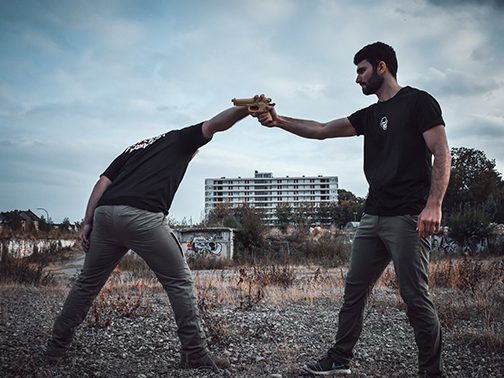
Krav Maga, widely regarded as one of the most effective self-defense systems, has gained international acclaim for its practicality and adaptability. Two of the leading organizations in the Krav Maga world are the International Krav Maga Federation (IKMF) and Krav Maga Global (KMG). While both are dedicated to carrying on the legacy of Krav Maga founder Imi Lichtenfeld, they each offer unique approaches, training methodologies, and philosophies. Below, we’ll explore the key differences between IKMF and KMG to help you make an informed decision about which path best suits your self-defense goals.
1. Founding and Leadership
IKMF:
- Established in 1994 with direct support from Imi Lichtenfeld.
- Originally led by Eyal Yanilov, who later parted ways with the organization.
- Maintains a strong link to traditional Krav Maga as imparted by its founder.
KMG:
- Founded in 2008 by Eyal Yanilov and other key figures after splitting from IKMF.
- Formed with the intent to modernize and expand Krav Maga’s global reach.
- Leadership focuses on evolving the system for contemporary real-world threats.
The main distinction here lies in IKMF’s adherence to the historical roots of Krav Maga versus KMG’s objective of infusing more modern elements and training methods into the discipline.
2. Curriculum and Training Approach
IKMF:
- Sticks closely to a traditional, structured curriculum emphasizing practical self-defense, physical fitness, and mental preparedness.
- Seeks to preserve Imi Lichtenfeld’s original Krav Maga teachings.
- Classes tend to follow a systematic progression, covering fundamental techniques before advancing.
KMG:
- Adopts a flexible, contemporary approach, blending traditional Krav Maga techniques with influences from other martial arts.
- Focuses on real-world adaptability, frequently updating techniques to address modern threats.
- More sparring is often incorporated, offering students additional exposure to realistic scenarios.
When considering IKMF vs KMG, think about whether you prefer a strict, tradition-oriented program (IKMF) or a dynamic, continually evolving structure (KMG).
3. Certification and Instructor Training
IKMF:
- Utilizes a rigid and standardized instructor certification process, maintaining a strict hierarchy.
- Instructors often follow a uniform set of lesson plans and protocols.
- Certification ensures a consistent level of quality and uniformity worldwide.
KMG:
- Also features a structured certification system, but allows instructors more freedom to personalize teaching approaches.
- Encourages adaptation to local cultures and individual student needs.
- Provides clear guidelines for grading but with the flexibility for varied instructional methods.
No matter the organization, instructor quality is frequently cited by practitioners as more critical than the overarching body. Be sure to research and, if possible, observe classes to assess an instructor’s competence and style.
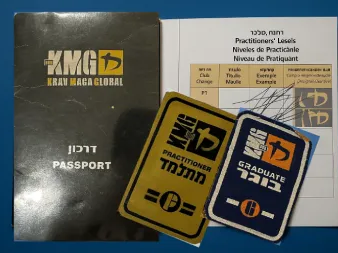
4. Global Reach and Affiliations
IKMF:
- Maintains strong centralized control, ensuring consistency in training across multiple continents, including Europe, Asia, and the Americas.
- Structures affiliates under a unified umbrella, promoting a cohesive global network.
KMG:
- Rapidly expanding worldwide, with a focus on local adaptations and instructor collaboration.
- Emphasizes building partnerships and localized strategies to tailor Krav Maga to diverse communities.
Both organizations enjoy a formidable presence globally. Deciding between them may depend on personal preference for either top-down organizational consistency (IKMF) or local, collaborative innovation (KMG).
5. Philosophy and Focus
IKMF:
- Remains faithful to Imi Lichtenfeld’s foundational principles, emphasizing combative, street-oriented self-defense.
- Concentrates on teaching techniques designed to neutralize threats efficiently in high-stress situations.
- Takes pride in preserving the original Krav Maga ethos.
KMG:
- Strives for a comprehensive approach that includes personal development, psychological preparedness, and conflict resolution.
- Stresses the importance of mindset and soft skills (de-escalation, situational awareness) alongside physical techniques.
- Balances the traditional essence of Krav Maga with a broader, more holistic outlook.
6. Insights from Practitioners
Class Duration and Structure
- IKMF classes often run longer (about 1.5 hours or more).
- KMG classes are typically shorter (around one hour), with a greater emphasis on sparring according to some practitioners.
- Training methods, however, can vary widely based on the individual school and instructor within each organization.
Instructor Quality Over Affiliation
- Time and again, students emphasize that the instructor’s experience, teaching style, and attitude are more important than the specific label (IKMF or KMG).
- A knowledgeable, enthusiastic, and safety-conscious instructor can dramatically impact your learning experience and progress.
Certification and Grading
- Both IKMF and KMG have structured grading systems, though they differ slightly in frequency and format of exams.
- KMG tests are typically available every six months.
- Debate continues about senior ranks within Krav Maga, but it’s widely agreed that Imi Lichtenfeld’s influence is at the core of both organizations.
7. Practical Considerations Before Choosing
- Trial Classes: Whenever possible, take trial classes with both organizations to see which style resonates with you.
- Gym Environment: Evaluate the cleanliness, safety protocols, and overall vibe. A positive atmosphere can greatly enhance your commitment and enjoyment.
- No Long-Term Contracts Initially: Avoid lengthy financial commitments until you’re confident that the training structure meets your needs and goals.
Finding the Right Fit for You
Ultimately, IKMF and KMG both offer effective, high-quality Krav Maga training. The choice boils down to personal preferences, goals, and local instructor quality. If you value traditional, structured instruction that hews closely to Imi Lichtenfeld’s original approach, IKMF may be your ideal match. On the other hand, if you’re drawn to a modern, adaptive training style that integrates a broader range of techniques and emphasizes sparring, KMG could be the better option.
Key Decision Factors
- Instructor Quality & Teaching Style: Does the instructor motivate and guide you effectively?
- Training Environment & Community: Do you feel comfortable, safe, and supported?
- Curriculum Structure: Do you prefer a traditional curriculum (IKMF) or a more flexible approach (KMG)?
- Additional Focus: Are you looking primarily for self-defense (IKMF) or a holistic blend that includes personal growth and conflict resolution (KMG)?
No single path is universally superior. Rather, the “best” organization is the one that aligns with your learning style, goals, and schedule. Test the waters, talk to instructors, and trust your instincts to guide you toward the Krav Maga journey that feels right for you.
Ready to Begin Your Krav Maga Journey?
If you’re serious about mastering self-defense, the next step is to visit a local IKMF or KMG gym to see their training firsthand. Observe a session, speak with instructors, and ask questions about class structure and progression. By actively exploring your options, you’ll be well-equipped to choose the Krav Maga school that fits your needs—putting you on the path to greater confidence, improved fitness, and enhanced personal safety.
Take action today: Schedule a free trial class or a meeting with a certified instructor at both an IKMF and a KMG location near you. With a little research and hands-on experience, you’ll find the perfect environment to achieve your self-defense goals and become the strongest version of yourself.
Ook iets voor jou?
Is It True That Martial Arts Are Useless in a Street Fight?
Can martial arts save you in a street fight? Discover the shocking truth behind their effectiveness, what styles truly prepare you, and why avoidance is the ultimate survival skill!
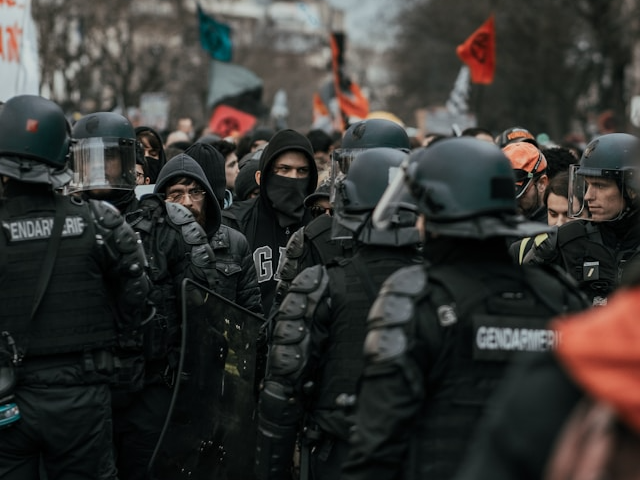
Karate Martial Arts: The Basics
Unleash your inner warrior! 🌟 Discover the ancient art of karate from Okinawa, blending fitness and self-defense. What if mastering this discipline could change your life? 🥋✨
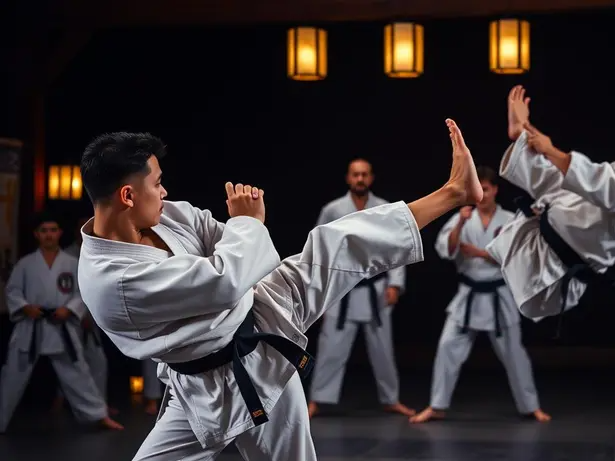
Think Tough Guys Are Scary? Wait Until You See What Weak Men Will Do…
Think you know strength? Discover why true power isn't just physical—it's about control and kindness. Are you ready to unleash your potential? Don’t miss out on this transformative journey!
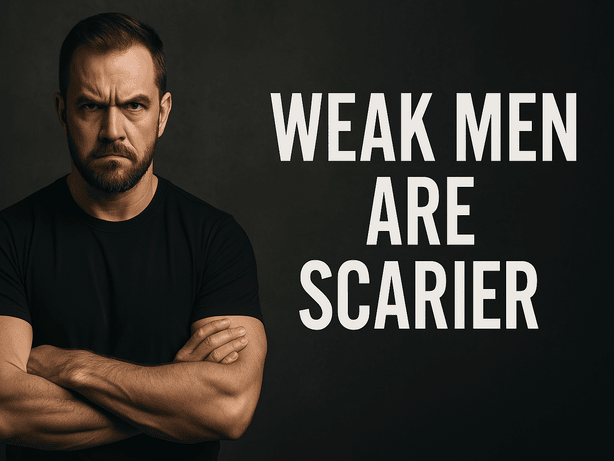
Reacties (0)
Je moet inloggen om een reactie te kunnen plaatsen.
Nog geen reacties. Wees de eerste die reageert!